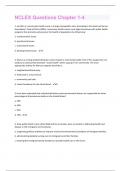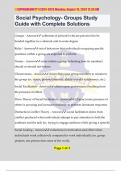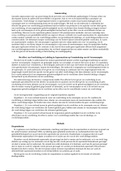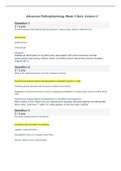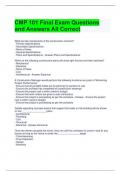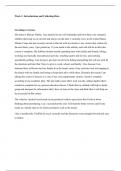Why do you study philosophy?
Because I feel like a lot of things in life happen because of an accidental succession of
circumstances. With philosophy, I want to challenge people and organizations/governments
to really reflect on their assumptions and goals and why those are the way they are. Without
proper reflection, I think we’re just walking around aimlessly, focusing on things that might
not really be of significance when thought about longer or deeper.
I want to apply this thought in practice with a focus on technologies, because I think
technologies already pose a lot of challenges and will pose a lot more in the future. It is
important that we don’t just let businesses and governments loose, but adjust their
development in a way that’s not just beneficial for governments and business, but also for
individual humans.
Six types:
1. Gadfly, insect, criticize institutions/society, does not have any positive vision of the
world to propose. Mainly challenge authorities what they’re doing wrong. What are
the pros and cons of this position?
2. Sage, specific views on the good life and how society should be changed accordingly.
They like to share this vision with others. Others often listen to them, but can be
critical. Do philosophers need specific types of knowledge to propose such views?
3. Self-transformer: philosophy viewed as a way of life, 24/7. It has an impact on your
interaction in the world, your attitude towards the world. Mindfulness, meditation. Is
philosophy a way of life or an academic discipline?
4. Curious person. Interested in particular things, like particular technologies. Not
interested in big, general problems. Is such a person still a philosopher?
5. Fee-for-service adviser. Seek money, by offering their knowledge and skills, because
they think they’re valuable. Write self-help books, join boards or work at big
businesses. Is earning a lot of money through philosophy objectionable or not?
6. Success-seeking professor. Part of an institution, accept its norms and want to
succeed in this context of academia. Philosophy is really a profession with a career. Is
there a tension between this person and the way you imagine the ambition of a
philosopher?
,Lecture 1: Plato
Plato wrote dialogues because:
- Only speech is alive, dynamic and enables people to learn from each other and find
something out together
- Written speech is dead
- It also forces the reader to be active, also because someone sometimes makes illogical
statements
- Socrates as a character and as a person. Not sure how Plato used him.
- But it is assumed that earlier parts of Meno for exampe, called Socratic dialogues, are really
how Socrates approached things, by for example looking for definitions and questioning
everything.
- The conversation helps writers to make readers understand the message
Meno Part 2:
It is not enough to know how a word is used, we want to find out a definition. Not only because we
want general information, but also because of its connections to other concepts. It states more than
just a meaning, it really shows what the concept is about, it’s the result of a compelling theory. Also:
- Knowing the essence of X is necessary for knowing the characteristics of X (priority of
essence thesis)
- It is impossible to act ethically without knowing what ethics is (centrality of knowledge for
practice thesis)
An enumeration is not a definition, because a complete list is often impossible and also just
unnecessary. It is also often insufficient, because different definitions could be applied to one list.
Then for refuting the second definition, Socrates uses his refutation method, elenchus. People claim
to know something important, but he challenges them and finds that the other person hasn’t
thought deeply enough.
Structure of the elenchus:
- X claims p
- Therefore, X is also committed to q and r
- But p, q and r are inconsistent
- Socrates can’t yet claiiopm that the opposite of p is true, but only that:
o The set of beliefs is inconsistent
o The interlocutor’s claim to expertise is undermined
- We can’t find out more by repeating the method
- We get an aporia, an impasse.
- But this is not futile, since it’s humbling and helps to improve one’s character
Meno Part 3:
Meno’s paradox might be based on a false dichotomy: you don’t either know everything about a
subject or nothing at all. But how then do you come about learn the first partial knowledge? You can
also say that you have latent knowledge, that becomes explicit when you focus your attention on it.
With recollection you can recollect abstract facts about things like math or the most important things
about ethics, politics and such.
Problems:
- The theory of recollection is not necessary for distinguishing between latent and explicit
knowledge
, - The theory creates new problems:
o Reincarnation creates a regress problem
o The whole theory is mysterious, a myth
- So why did he introduce it?
Two hermeneutic principles: fidelity and charity
- Hermeneutic: the art of interpretation
- Principle of charity: adopt the most rational interpretation of the argument, consistent with
the principle of fidelity. This means that you should interpret an author in the way that
makes the most sense, while recognizing the authors intentions.
- Principle of fidelity: be as faithful to the author’s known intentions as possible
When interpreting recollection through the principle of charity:
- The supernatural can attract the attention of readers and Meno.
- Also because it would also be a surprising story for Greek readers
Two interpretations of slave boy episode:
- Meant as a proof of theory (but it’s not necessary to solve the Meno paradox)
- Meant as an illustration of recollection and finding a proof sequentially (more charitable).
Also because there were clear informative leading questions. It shows knowledge is
progressive and takes effort and is a systematic whole.
- It also shows the difference between Meno, who is lazy, and the slave boy, who wants to
learn.
Innate knowledge for Plato:
- Propositions, like definition of virtue. But this one is not plausible, because the slave boy
doesn’t recollect a theorem
- Concepts, like large and small
- Capacities, like reasoning about math
Noam Chomsky argues for contemporary nativism based on this, which states that we have innate
concepts at birth for for example learning languages.
Connection to technology:
- How can machines acquire ethics?
o Is it even teachable?
Is it explicit? Or more like recollection, where you need native ethical
concepts or reasoning?
o Does it come from practice?
o Is it natural? (spontaneous)
Meno Part 4:
- Socrates still goes on to solve the question of whether virtue is teachable, because of
practical needs, namely to know how to educate people.
- To do so, he uses a different method and poses the hypothesis that the question ‘what is
virtue’ has been answered
The Method:
- Start with p: virtue is teachable
- Find a proposition q and show that its truth is necessary and sufficient for the truth of p
o Q: virtue is knowledge




